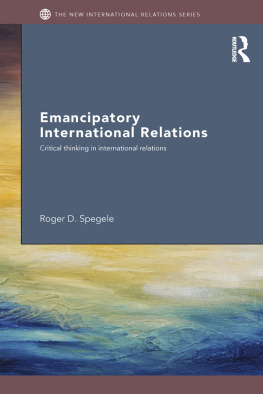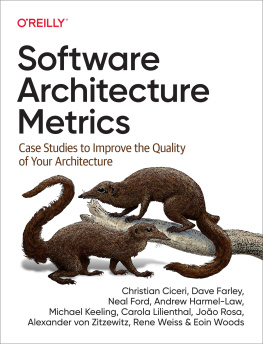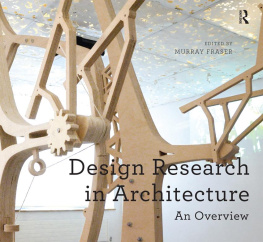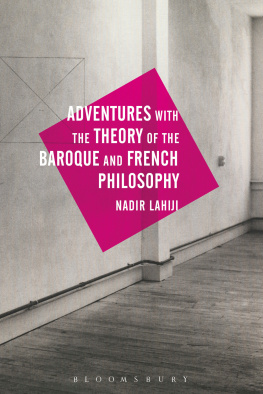Zero Books is an imprint of John Hunt Publishing Ltd., Laurel House, Station Approach,
For distributor details and how to order please visit the Ordering section on our website.
All rights reserved. Except for brief quotations in critical articles or reviews, no part of this book may be reproduced in any manner without prior written permission from the publishers.
The rights of Nadir Lahiji as editor have been asserted in accordance with the Copyright, Designs and Patents Act 1988.
A CIP catalogue record for this book is available from the British Library.
We operate a distinctive and ethical publishing philosophy in all areas of our business, from our global network of authors to production and worldwide distribution.
CONTENTS
1. Autonomys Adventures: or What Does it Mean to Politicize Architecture?
Libero Andreotti
2. Architecture, the Built and the Idea of Socialism
David Cunningham
3. Architects, Really
Peggy Deamer
4. On The Impossibility of an Emancipatory Architecture: The Deadlock of Critical Theory, Insurgent Architects, and the Beginning of Politics
Erik Swyngedouw
5. The Misery of Theory: On Universality, Contingency, and Truth
Libero Andreotti
6. Architecture, Capitalism and the Autonomy of the Political
David Cunningham
7. Architecture/Agency/Emancipation
Peggy Deamer
8. But What About Left Architecture?
Erik Swyngedouw
9. The Project of Emancipation, the Communist Hypothesis, and a Plea for The Platonism of Architecture
Nadir Lahiji
Afterword
Joan Ockman
Notes on Contributors
Libero Andreotti is Professor of Architecture and Resident Director of the Georgia Tech Paris Program at the Ecole Nationale Superieure dArchitecture de Paris La Villette. An architect and an historian, he holds a Ph.D. in Art, Architecture, and Environmental Studies from M.I.T. His most recent books are SpielRaum: Walter Benjamin et lArchitecture (Paris, Editions La Villette 2011) and Le Grand Jeu a Venir: ecrits situationnnistes sur la ville (Paris, Editions La Villette 2007). He is also co-author, with Xavier Costa, of Situationists: Art, Politics, Urbanism (Barcelona: ACTAR 1997) and Theory of the Derive and other situationist writings on the city (Barcelona: ACTAR 1997). His articles have appeared in October, Lotus International, JAE, and Grey Room.
David Cunningham is Deputy Director of the Institute for Modern and Contemporary Culture at the University of Westminster in London and a member of the editorial collective of the journal Radical Philosophy, as well as on the International Advisory Board of CITY: Analysis of Urban Trends, Culture, Theory, Policy, Action. He is an editor of collections on Adorno (2006) and photography and literature (2005), as well as of a special issue of the Journal of Architecture on post-war avant-gardes. Other writings of his on aesthetics, modernism and urban theory have appeared in publications including Angelaki, Architectural Design, Journal of Visual Culture, New Formations and SubStance. He is currently completing a book on the concept of the metropolis.
Peggy Deamer is Assistant Dean and Professor of Architecture at Yale University. She is a principal in the firm of Deamer, Architects. She received a B.Arch. from The Cooper Union and a Ph.D. from Princeton University. She is the editor of The Architect as Worker: Immaterial Labor, the Creative Class, and the Politics of Design (forthcoming, Bloomsbury Press), Architecture and Capitalism: 1845 to the Present (Routledge), The MillenniumHouse (Monacelli Press), and co-editor of Building in the Future: Recasting Architectural Labor (MIT Press) and BIM in Academia (Yale School of Architecture) with Phil Bernstein. Recent articles include The Changing Nature of Architectural Work in Design Practices Now Vol II, The Harvard Design Magazine no. 33; Detail Deliberation in Building (in) the Future: Recasting Labor in Architecture; Work in Perspecta 47; Practicing Practice in Perspecta 44; and Design and Contemporary Practice in Architecture from the Outside, Dana Cuff, John Wriedt, eds. Her research examines the nature of architectural work/labor and subjectivity. She is the organizing member of the advocacy group, The Architecture Lobby.
Nadir Lahijis recent edited books include The Missed Encounter of Radical Philosophy with Architecture (Bloomsbury, 2014 and 2015); Architecture Against the Post-Political: Essays on Reclaiming the Critical Project (Routledge, 2014); The Political Unconscious of Architecture: Re-Opening Jamesons Narrative (Ashgate, 2011 and 2012). He has contributed chapters to numerous books, including Architecture Post Mortem: The Diastolic Architecture of Decline, Dystopia, and Death, eds. Donald Kunze, Charles David Bertolin, Simone Brott, (Surrey: Ashgate, 2013); Architecture and Violence, edited by Bechir Kenzari, (Barcelona: Actar, 2011), Spielraum: W. Benjamin et LArchitecture, edited by Libero Andreotti (Paris: ditions de la Villette, 2011); Walter Benjamin and Architecture, edited by Gevork Hartoonian (London: Routledge, 2010). He has contributed a number of essays to journals including Architecture Theory Review and International Journal of Zizeks Study.
Joan Ockman is Distinguished Senior Fellow at the University of Pennsylvania School of Design. She is currently also a visiting professor at Cooper Union and Cornell University. She directed the Temple Hoyne Buell Center for the Study of American Architecture at Columbia University from 1994 to 2008. She has written widely on the history, culture, and theory of modern and contemporary architecture. Her book publications include Architecture Culture 1943-1968 (1993), The Pragmatist Imagination: Thinking about Things in the Making (2000), and Architecture School: Three Centuries of Educating Architecture in North America (2012). She began her career at the Institute for Architecture and Urban Studies in New York in 1976 and was an editor of its journal Oppositions and of the Oppositions Books series.
Erik Swyngedouw is Professor of Geography at Manchester University. His research interests include political-ecology, urban governance, democracy and political power, and the politics of globalization. He was previously Professor of Geography at Oxford University and held the Vincent Wright Visiting Professorship at Science Po, Paris, 2014. His recent publications include In the Nature of Cities (co-edited with Maria Kaika and Nik Heynen (Routledge, 2005), The Post-Political and its Discontents: Specters of Radical Politics Today (co-edited with Japhy Wilson (Edinburgh University Press 2014). His new monograph, Liquid Power: Nature, Modernity and Social Power, was published by MIT Press in 2015.
Introduction
Nadir Lahiji
Instead of singing the advent of the ideal of liberal democracy and of the capitalist market in the euphoria of the end of history, instead of celebrating the end of ideologies and the end of the great emancipatory discourses, let us never neglect this obvious macroscopic fact, made up of innumerable singular sites of suffering .


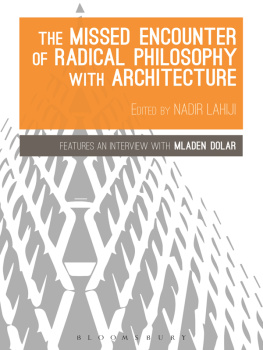
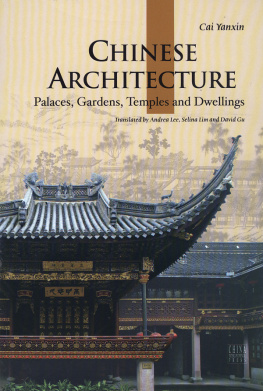
![Tommy Vince - how architecture can save the world from global climate change: architectural suggestions on strategic use of greenhouse gas sequestering materials that antagonist atmospheric C[O2] in the context of](/uploads/posts/book/428279/thumbs/tommy-vince-how-architecture-can-save-the-world.jpg)
